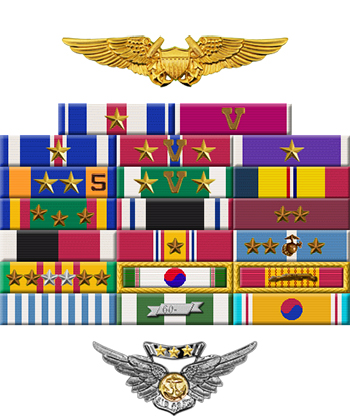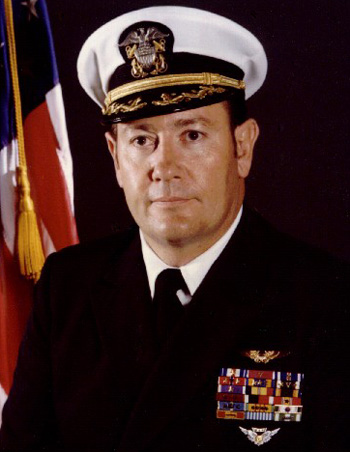
|
David J. Rollins |
 |
|||
| Rank, Service | ||||
Commander O-5, U.S. Navy |
||||
| Veteran of: | ||||
|
||||
| Tribute: | ||||
David Rollins was born on May 4, 1931, in Oakland, California. He enlisted in the U.S. Navy on July 24, 1948, and was trained as an Aviation Structural Mechanic. Rollins later served as an enlisted combat aircrewman, serving as an aerial gunner, radar operator, flight engineer, navigator, and bombardier during the Korean War. Most of his enlisted flying time was aboard the PB4Y-1 Liberator and the PV-2 Harpoon. He made Chief Petty Officer (E-7) in July 1957, and was commissioned as an Aircraft Maintenance Limited Duty Officer (LDO) on January 8, 1960. He was trained as a Naval Flight Officer and became a member of the Fleet Introduction Team for the F-4 Phantom II. Rollins began flying combat missions in Southeast Asia with Fighter Squadron 114 from the USS Kitty Hawk in 1966 and he was forced to eject over North Vietnam on May 14, 1967. He was immediately captured and spent the next 2,121 days as a Prisoner of War before being released during Operation Homecoming on March 4, 1973. After hospitalization, he was assigned to VF-121, the Navy's F-4 replacement training squadron, where he served as Executive Officer until he was medically retired from the Navy on October 11, 1977. CDR Rollins was the only Navy LDO captured and held as a POW during the Vietnam War. David Rollins died on November 10, 2015, and was buried at Miramar National Cemetery in San Diego, California. David was married to the former Connie Chadburn until his death, and they had two sons, one daughter, and fourteen grandchildren together. |
||||
|
||||

